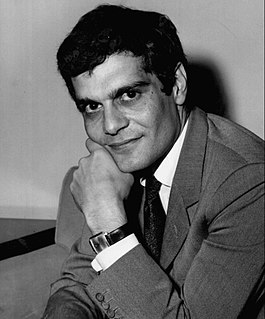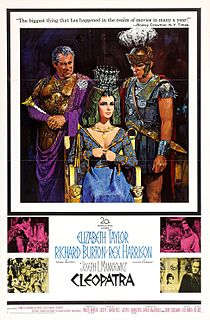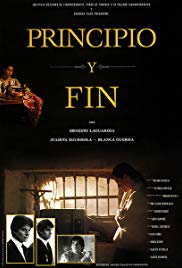
Soad Hosny was an Egyptian actress born in Cairo. She was known as the "Cinderella of Egyptian cinema" and one of the most influential actresses in the Middle East and the Arab world. She ascended to stardom at the end of the 1950s, performing in more than 83 films between 1959 and 1991 with a credit of 9 films in the greatest 100 films in the history of Egyptian Cinema. A majority of her films were shot in the 1960s and 1970s. Her final screen appearance was in the 1991 film, The Shepherd and the Women, directed by her ex-husband, Ali Badrakhan.

Omar Sharif was an Egyptian actor, generally regarded as his country's greatest male film star. He began his career in his native country in the 1950s, but is best known for his appearances in British, American, French, and Italian productions. His career encompassed over 100 films spanning 50 years, and brought him many accolades including three Golden Globe Awards and a César Award for Best Actor.
In 1999, the British Film Institute surveyed 1,000 people from the world of British film and television to produce a list of the greatest British films of the 20th century. Voters were asked to choose up to 100 films that were "culturally British".
This is an index of lists of films by year, awards, countries of origin and genre among other factors.
The Egypt Cup is the main knockout football cup competition in Egypt.

Ismail Yassine was an Egyptian comedian actor, and is considered as one of the greatest comedians in Egypt.

Cleopatra is a 1963 American epic historical drama film directed by Joseph L. Mankiewicz, with a screenplay adapted by Mankiewicz, Ranald MacDougall and Sidney Buchman from the 1957 book The Life and Times of Cleopatra by Carlo Maria Franzero, and from histories by Plutarch, Suetonius, and Appian. The film stars Elizabeth Taylor in the eponymous role. Richard Burton, Rex Harrison, Roddy McDowall, and Martin Landau are featured in supporting roles. It chronicles the struggles of Cleopatra, the young queen of Egypt, to resist the imperial ambitions of Rome.
Middle Eastern Cinema collectively refers to the film industries of Western Asia and part of North Africa. By definition, it encompasses the film industries of Egypt, Iran, Bahrain, Iraq, Israel, Jordan, Kuwait, Lebanon, Palestine, Oman, Qatar, Saudi Arabia, Syria, United Arab Emirates, and Yemen. As such, the film industries of these countries are also part of the cinema of Asia, or in the case of Egypt, Africa.

Salah Abu Seif was one of the most famous Egyptian film directors, and is considered to be the godfather of Neorealist cinema in Egypt. Many of the 41 films he directed are considered Egyptian classics with 11 films in the Top 100 Egyptian films list. His film The Beginning and the End (1960) was the first adaptation of a novel by Nobel Prize winner Naguib Mahfouz. In 1977 he was a member of the jury at the 10th Moscow International Film Festival.
The following is a list of Egyptian films. The year order is split by decade. For an alphabetical list of films currently on Wikipedia, see Category:Egyptian films.

The cinema of Egypt refers to the flourishing film industry based in Cairo which is known to be the Hollywood of the MENA region. Since 1976, the capital has held the annual Cairo International Film Festival, which has been accredited by the International Federation of Film Producers Associations. There is also another 12 festivals. Of the more than 4,000 short and feature-length films made in MENA region since 1908, more than three-quarters were Egyptian films. Egyptian films are typically spoken in the Egyptian Arabic dialect.
The Night of Counting the Years, also released in Arabic as The Mummy, is a 1969 Egyptian film and the only feature film directed by Shadi Abdel Salam. The film was selected as the Egyptian entry for the Best Foreign Language Film at the 43rd Academy Awards, but was not accepted as a nominee. It is the 3rd on the list of Top 100 Egyptian films.

Salah El Din Ahmed Mourad Zulfikar was an Egyptian actor and film producer. He started his career as a police officer in the Egyptian National Police, before becoming an actor in 1956. He is regarded as one of the most influential actors in the history of Egyptian film industry. Zulfikar had roles in more than 100 feature films in multiple genres during a 37-year career, mostly as the leading actor. In 1996, in the centenary of Egyptian cinema, ten of his films as an actor and five of his films as a producer were listed in the Top hundred Egyptian films of the 20th century.

Syrian cinema has existed since the early 20th century. The first Syrian film was Al Muttaham al Baree , released in 1928. Since the early 1960s, the film sector has been mainly managed by the National Organization for Cinema, a department of Ministry of Culture. The film industry blossomed in the 1960s, despite a significant shift toward nationalistic documentaries, and has continued to garner attention. Prominent filmmakers include Nazih Shabandar, Rasheed Jalal, and Qays al-Zubeydi.

Mahmoud Qasdy Ahmed Mourad Zulfikar was an Egyptian film director, producer, screenwriter, and actor. He was a major figure in Egyptian film industry.

The Pharaohs' Woman is a 1960 historical drama film directed by Victor Tourjansky and starring John Drew Barrymore. The film is set in Ancient Egypt during the 31st century BCE and pertains to a love story set against the backdrop of a power struggle between a prince of the former ruling dynasty of Lower Egypt and the new overlords from Upper Egypt. It was the first feature film shot in Techniscope.

The Beginning and the End is a 1993 Mexican drama film directed by Arturo Ripstein. The film was selected as the Mexican entry for the Best Foreign Language Film at the 67th Academy Awards, but was not accepted as a nominee. This film is an adaptation of the 1960 novel by Egyptian author Naguib Mahfouz.
Top 100 Egyptian films aliases: CIFF 100 Egyptian films or Greatest 100 Egyptian films in 20th century or Top 100 films in the centenary of Egyptian cinema is the result of a referendum in which many Egyptian critics participated in 1996 to choose the 100 best Egyptian films of the 20th century, as part of the activities of the Cairo International Film Festival in its 20th session, on the occasion of the centenary of Egyptian cinema, which coincides with the first film screening in Egypt in 1896.












